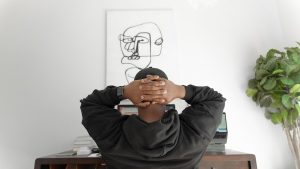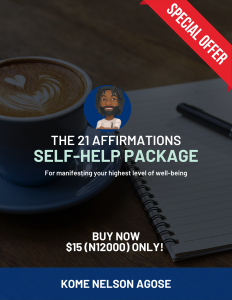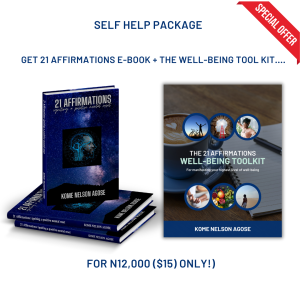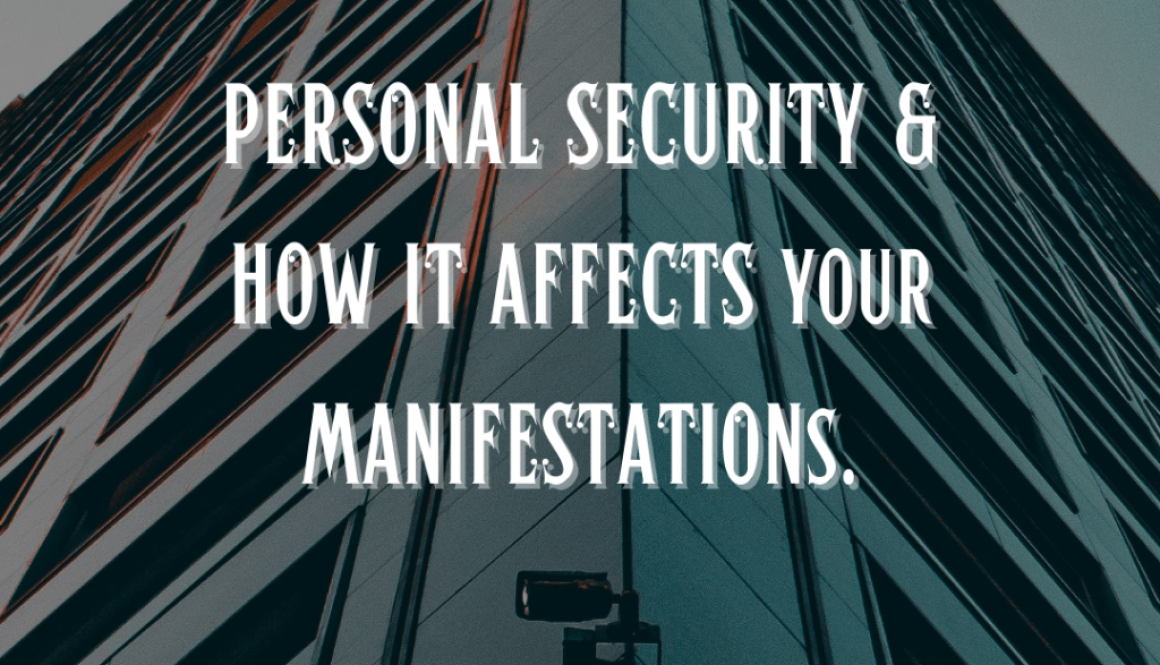Personal security and how it affects your manifestations!
Personal security and how it affects your manifestations!

What comes to mind when you think of personal security? For most people, it is finances, a comfortable home in a secure location, a good career, family, solid relationships and a relationship with God or any other supernatural entity. These are all important aspects of personal security but with this article, I would like to reflect on a deeper and even more personal dimension of personal security. This dimension of personal security explores our relationship with our mind, our relationship with our emotions and very importantly, our relationship with our body, throughout our entire lives. I believe this dimension of personal security lays the foundation for how we experience every other dimension of personal security in our lives.
What is the end goal of achieving personal security? The obvious answer is to feel safe. To feel safe where? In order for us to feel safe anywhere in the world, we must begin by feeling safe within our own bodies. All insecurity manifests from the illusion of not feeling safe within ourselves. Your body is both your vessel to experience the world, as well as your entire world. If you do not feel comfortable within yourself, you will never feel comfortable (alone) anywhere else, therefore, your body is the most important domain to protect. Why is it important for your body to feel safe? It is important for your body to feel safe in order for you to function at your highest level in every aspect of your life. Feeling safe within our body is perceived as confidence, happiness, courage, intelligence, mastery, seductiveness, beauty, charm and many other great positive things. When our body feels safe it is easier for us to manifest the quality of life that we desire.

The big problem for me with personal security, is that at the beginning of our lives, our personal security is completely out of our own control. We are born as infants and our entire personal security is entrusted to the hands of our parents, family members, caretakers and community. Let us call this group of people, “Group X.” We develop our initial concepts of personal security from Group X and how Group X makes us feel from birth, all through our childhood, adolescence stage and even up until we become adults. Group X is by far the most important group in shaping our core concepts of personal security, which influences whether or not we feel safe within our own body. The fact that we do not begin life being in charge of our own personal security means that we either begin with an advantage or a disadvantage in regards to feeling safe within our own selves and in the world! We start off life with zero language, zero knowledge, and zero power to set our own boundaries, that will allow us to feel safe within ourselves and in our interactions with everyone else.
It is during this stage of development that a lot of damage tends to be done to a lot of people and it takes intentional self-work and access to the right information and tools, to ever heal from the experiences. This is where coaching alliances and therapy can offer massive value in helping adults gain deeper insight, into life experiences that shape their feelings of personal security. We must spend time alone with ourselves, asking the right questions, meditating and listening to our body in order to truly discover what it needs to feel safe.
Here are 10 powerful questions you can ask yourself to discover how your Group X has influenced your core concepts and beliefs of personal security:
- Did I feel loved unconditionally by Group X? (did I only feel loved when I pleased them even when pleasing them didn’t please me?)
- Did I feel protected by Group X? (Did I feel they protected me from physical, emotional, spiritual and mental intrusion?)
- Did I feel accepted by Group X?
- Did I feel wanted by Group X?
- Did I feel safe around Group X?
- How did Group X make my body feel? (Did my body feel comfortable, protected and appropriately handled? Did my body ever feel in danger?)
- Did I feel restricted by Group X? (Could I be myself around them? Could I express myself to them?)
- How did Group X respond or make me feel when I made mistakes?
- Did I feel emotionally supported by Group X?
- Did group X make me feel validated (Did they make me feel like they were proud of me?)

The level of safety we feel from Group X, determines how we experience the next important group that shapes our concept of personal security. This group includes all figures of authority outside of Group X. Our school teachers, headmasters, sports coaches, school itself, church, government, celebrities and media. Let us call them “Group Y.” This is where the quality of environment and the quality of the culture in the environment become very important on so many levels! The core values, the average standard of living, the economy, the hygiene and aesthetics of the environment, inevitably shape the way Group Y influences our personal security. Using Nigeria as an example, A child growing up in Banana Island Lagos, may naturally feel safer in his environment than a child growing up in Makoko, Yaba. Although aesthetics and quality of environment are not the most important attributes of Group Y, it usually follows that with better quality of environment, comes better core values within the environment.
Within Group Y, one of the most important groups of influencers are the school influencers (teachers, headmasters, school curriculums, housemasters and sports coaches) and the religious influencers (Priests, pastors, catechists, Imams, holy men and holy women.) This group largely determines the social aspect of our personal security with regards to if we feel good enough for society and if we feel safe within society. Their curriculums, doctrines, teachings, systems of value, systems of correction, systems of validation and systems of reward greatly determine our concepts and beliefs of personal security, especially in the early stages of our lives. The degree to which we feel judged or accepted by this people and the degree to which we feel validated or invalidated by this people, also greatly affects our feelings of personal security.
Here are 10 powerful questions you can ask yourself to discover how your Group Y has influenced your core concepts and beliefs of personal security:
- How did school make me feel as a child? (nursery, primary and secondary school especially)
- How did I feel around school authorities? (head masters, teachers, sports coaches)
- How did my school curriculum make me feel? (classwork and homework)
- How did quizzes, tests and examinations make me feel?
- How did school authorities make me feel about my intellect and talents?
- How did church or mosque (or any other place of worship) make me feel growing up?
- How did I feel about my country’s president and leaders?
- Did I feel validated by Group Y?
- Did I feel encouraged/supported by Group Y?
- How did Group Y respond when I made mistakes?

The next (extremely important) group of people who help shape our concepts of personal security from an early age is our “Group Z.” This group includes our peer groups, childhood friendships, and our first intimate relationships. Outside of family, they largely influence the way we view and feel about ourselves. Our relationship with and experience of our Group X greatly influences our experience and relationship with our Group Z. The better and more solid our experience of Group X is, the less dependent we will be on our Group Z for personal security. In cases where individuals have a negative experience of Group X, the desire for their Group Z to satisfy their needs of personal security becomes a lot stronger. The people we call friends are usually people who closely reflect our inner values, beliefs and interests. They are like a mirror through which we can see how the world sees us. How this group of people view us, speak to us, treat us and make us feel, greatly shapes how we will grow up feeling about ourselves for a major part of our lives, until we learn to become accountable for our own well-being. Group Z influences our self-image, our self-confidence, our level of self-love, our level of trust, our behaviours, our trends, our systems of value and self-validation. The quality of Group Y also comes into play here because it is supposed to provide a layer of structure, boundaries and protection in the interactions within Group Z.
Here are 10 powerful questions you can ask yourself to discover how your Group Z has influenced your core concepts and beliefs of personal security:
- Did I feel heard and seen by Group Z?
- Did I feel accepted by Group Z?
- How did I feel around Group Z?
- Did I feel respected by Group Z?
- How did Group Z make me feel about my body? (self-image, appearance and how you sound)
- How did Group Z make me feel about my intellect and talent?
- How did Group Z make me feel about my family background?
- How did Group Z make me feel about being myself? (how you behaved naturally)
- On a scale of 1-10, how much did I trust Group Z?
- On a scale of 1-10 how much disappointment did I experience from Group Z?

Credit: Getty Images/iStockphoto
Now that we have discussed the major issues with personal security and the major groups that shape our experience of personal security, how do we get to feel safe? The journey to feeling safe is a journey of self-awareness, which begins with us deciding to take accountability for our own well-being as adults. We must find a way to break free from the influence and control of Groups X, Y, and Z. The more you detach from the influence and control of Group XYZ, the more you to begin to know yourself, to think for yourself, to set healthy boundaries and to truly express your truest intentions in line with your life purpose. How do we achieve this when we may already be starting with foundational disadvantages? We achieve this by connecting with the master group! This group remains hidden to majority of the world because they never delve deep enough into their journey of self-discovery and self-awareness. They don’t have the right mentorship, support or community so they give up before their journey bears fruits. This master group I like to call “Group Alpha.” This group includes God (the supreme creator), your soul (master/creative mind), nature and abundance (money, success and supply). The relationship we develop with this group supersedes any and every other relationship we have with other groups. It is through developing a solid relationship with this group that we can rewrite our entire experience of personal security and install the settings we desire to have, for our highest level of safety and well-being.
Once we become adults, we are no longer powerless to set the right boundaries for us to achieve personal security. We must desire it for ourselves and demand it from the world in order for us to ever experience it in our reality. We must take our power back by deciding to become accountability for our own well-being and no longer depending on Group XYZ to provide it for us.
Taking accountability for your well-being is the gateway to building a solid relationship with Group Alpha. We embark on this journey of accountability by:
- Choosing to spend more time alone with ourselves, asking the right questions, meditating, listening to our master mind, praying, journaling and observing our own patterns. The more we listen in silence the clearer we receive God’s guidance. But in order to know the creator you can’t see, you must commit to knowing yourself (the creator you can see) completely!
- Choosing to learn about our body and emotions, finding out what they require and honoring them
- Choosing to reflect on past experiences in order to validate how we felt about them whether or not they were validated by the world
- Choosing to learn what we deeply desire outside of external influences and to believe that our desires are valid
- Choosing to affirm and love ourselves everyday
- Choosing to build consistency with our body through healthy spiritual, physical and emotional routines. The more consistent we are with these routines the more self-trust and confidence we build
- Choosing to spend time in nature, contemplating, meditating and listening to/feeling the vibrations around us
- Choosing to discover our talents and gifts and to do our best to express them to the full
We need personal security to live authentically, and those who think, speak and live authentically, get what they desire. Most times it is not that people don’t value us, it is that we don’t value ourselves. And most times it is not that we do not value ourselves, it’s that we do not feel safe enough or worthy enough to feel valuable.
Finally, how does your body feel about you? If your body was a friend or acquaintance in your life, how do you think it would feel about you? Sit down in a quiet place, ask your body these questions and listen to what comes to mind. Write it down.
Check out my book “21 Affirmations: Igniting a positive mental reset” for action steps you can take to “Check in with yourself” in every area of your life. I am currently running a “Self-help package promo” where you can purchase the 21 Affirmations eBook and the well-being toolkit for just $15 (N12,000) only!
The “Well-being tool kit” works as a self-coaching manual for observing and managing the action steps for manifesting your highest level of well-being! It works hand in hand as a playbook for the book 21 Affirmation, and includes detailed work sheets for doing the activities in it.


Link to purchase and download: 21 AFFIRMATIONS SELF-HELP PACKAGE
One love
Blink
To comment on this post, join my private community Society of Freedom Thinkers (SOFT)
On WhatsApp: https://chat.whatsapp.com/FaN43gwWrRTCKgrUdAgDZz
On Telegram: https://t.me/+du-ySnTd9ntjYWJk
Visit my coaching page for 1-1 coaching packages
Checkout the site shop for tools to help achieve your highest level of well-being!
